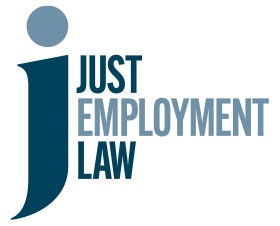As 2022 draws to a close, we take an opportunity to reflect upon, and summarise, some of the employment law developments from this year.
Increases to statutory rates and ET limits
As we had expected, with effect from April 2022, there were the standard increases to statutory payments, such as statutory sick pay, the national minimum wage and the living wage. There were also increases to the awards that the Employment Tribunal can make in unfair dismissal cases, including an increase to the compensatory award for unfair dismissal cases from £89,443 to £93,878. Additionally, the ‘Vento bands’, which are used when assessing awards for injury to feelings in discrimination cases, were increased as follows: The lower band for less serious cases increased to being between £900 and £9,900; The middle band was increased to between £9,900 and £29,600; The upper band for most serious cases increased to between £29,600 and £49,300; and For exceptional cases, awards over £49,300 can be made.
Four-day working week
In June 2022, it was reported that more than 3,300 workers at 70 UK companies had taken part in a 6-month trial of a 4-day work week for full-time staff, with no loss of pay. A survey of the 70 companies involved revealed that 88% of companies found the four-day working week to be working “well” for their business and 95% of companies reported that productivity had either stayed the same or improved since the trial began. This is the biggest trial yet of a four-day working week and a growing number of employers are starting to trial or roll out a four-day working week to their staff with no loss of pay.
Flexible working
Following the Covid-19 pandemic, many employers have retained the elements of hybrid working arrangements which best suit their organisational needs, and we have seen a growing recognition amongst employers of all sizes and sectors that more flexible methods of working can have mutual benefits for both employees and employers. Recognising the move towards more flexible ways of working, the Government confirmed earlier this month that it intends to make the right to request flexible working a ‘day one right’, meaning that employees will be able to make such a request from the first day of employment (employees currently need to have 26 weeks continuous employment with their employer). This change will extend the right to request flexible working to millions of employees who currently are not able to do so.
EU employment law revocation
In September 2022, the Government introduced the Retained EU Law (Revocation and Reform) Bill to the House of Commons. In its current form, the Bill proposes that, by the end of 2023, all retained EU law will be revoked and will therefore no longer apply in the UK, unless a positive decision is made to retain particular laws. This is a significant piece of proposed legislation that could alter or affect the future applicability of current UK employment law obligations which come from the EU, including paid holidays, limits on working time and protections for agency and fixed term workers. We will be keeping a close eye, and reporting on, developments in this respect.
Calculation of holiday pay
In the case of Harper Trust v Brazel, the Supreme Court held that it is no longer lawful to base a worker’s holiday pay on 12.07% of the hours a worker has worked. Instead, employers must ensure that all workers are given a holiday entitlement which is no less than 5.6 weeks per year (which can include public holidays), even if they do not normally work the full year. A week’s holiday pay for someone whose hours or pay fluctuates from week to week should be based on their average pay in the 52-week period immediately before the holiday, disregarding any weeks without pay and using earlier weeks in their place.
Long covid as a disability
In the case of Burke v Turner Point Scotland, the Employment Tribunal held that if long Covid, being a person’s ‘physical or mental impairment’, has a ‘substantial and long-term adverse effect on [the person’s] ability to carry out normal day-to-day activities’ (the legal definition of a disability under the Equality Act 2010), then long COVID could amount to a disability. This means that employers with employees suffering from long COVID need to be aware that the condition may be a disability for which reasonable adjustments must be made. Careful and supportive handling of situations where employees have or may have long covid is therefore prudent.
Ban on exclusivity clauses for low-income workers
5 December 2022 saw the Government’s ban on exclusivity clauses in employment contracts for low-income workers come into force. As we reported back in November, many contracts of employment contain an exclusivity clause, which prevents workers from carrying out other work without their employer’s prior permission, and exclusivity clauses are usually included in the employment contract to avoid a breach of the 48-hour maximum working week set out in the Working Time Regulations, as work which the employee does for each employer is counted when calculating working time. However, the Government decided that workers earning below the Lower Earnings Limit for paying National Insurance contributions should be free to carry out work for different employers so that they have the opportunity to maximise their income. As a result, dismissing an employee for breaching an exclusivity clause where they earn below the Lower Earnings Limit will constitute an automatically unfair dismissal (where the employee does not require 2 years’ service before bringing such a claim).
Article by


